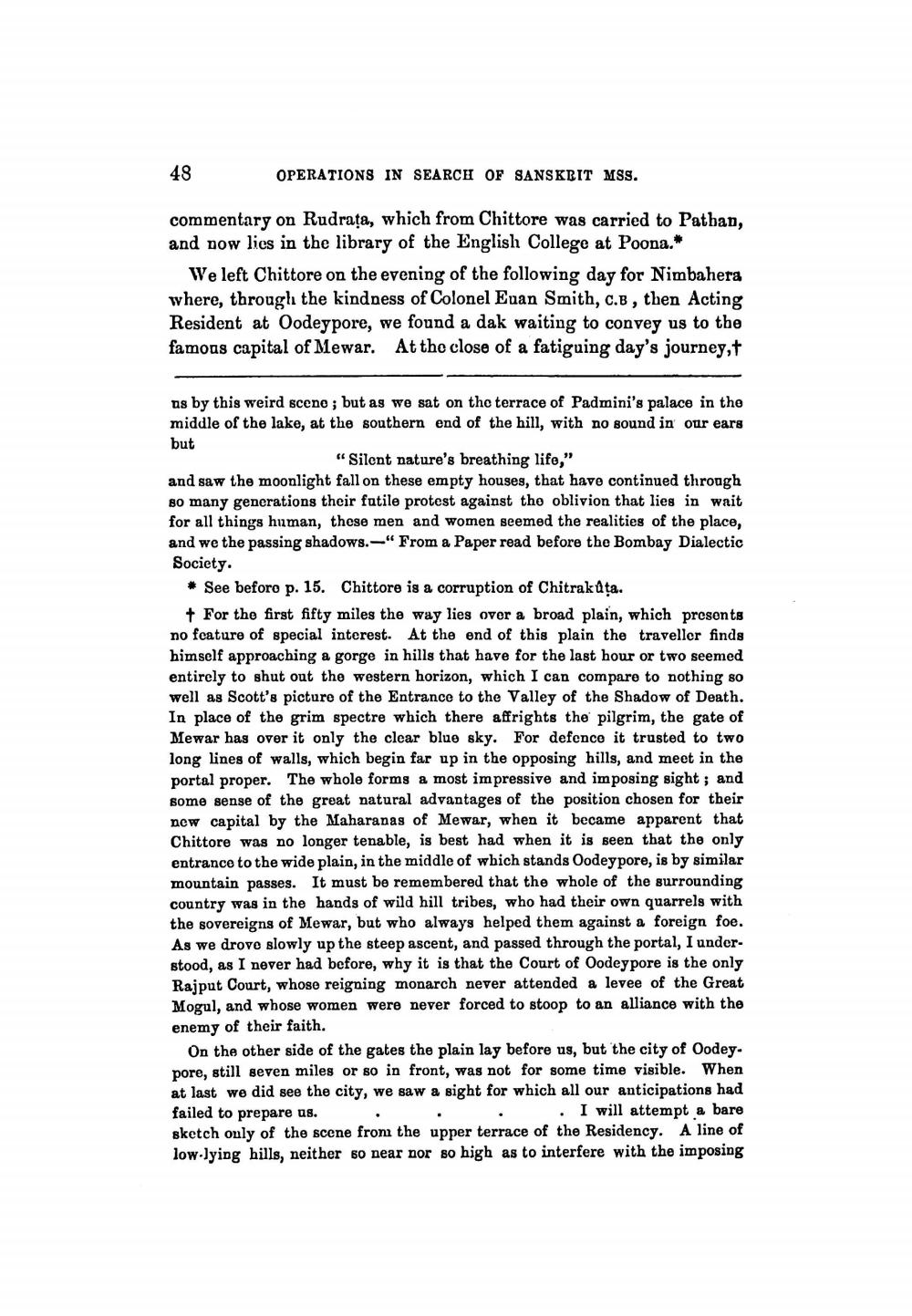________________
48
OPERATIONS IN SEARCH OF SANSKRIT MSS.
commentary on Rudrata, which from Chittore was carried to Pathan, and now lies in the library of the English College at Poona.*
We left Chittore on the evening of the following day for Nimbahera where, through the kindness of Colonel Euan Smith, C.B, then Acting Resident at Oodeypore, we found a dak waiting to convey us to the famous capital of Mewar. At the close of a fatiguing day's journey,t
us by this weird scene; but as we sat on the terrace of Padmini's palace in the middle of the lake, at the southern end of the hill, with no sound in our ears but
"Silent nature's breathing life,"
and saw the moonlight fall on these empty houses, that have continued through so many generations their futile protest against the oblivion that lies in wait for all things human, these men and women seemed the realities of the place, and we the passing shadows." From a Paper read before the Bombay Dialectic Society.
See beforo p. 15. Chittore is a corruption of Chitrakuta.
For the first fifty miles the way lies over a broad plain, which presents no feature of special interest. At the end of this plain the traveller finds himself approaching a gorge in hills that have for the last hour or two seemed entirely to shut out the western horizon, which I can compare to nothing so well as Scott's picture of the Entrance to the Valley of the Shadow of Death. In place of the grim spectre which there affrights the pilgrim, the gate of Mewar has over it only the clear blue sky. For defence it trusted to two long lines of walls, which begin far up in the opposing hills, and meet in the portal proper. The whole forms a most impressive and imposing sight; and some sense of the great natural advantages of the position chosen for their new capital by the Maharanas of Mewar, when it became apparent that Chittore was no longer tenable, is best had when it is seen that the only entrance to the wide plain, in the middle of which stands Oodeypore, is by similar mountain passes. It must be remembered that the whole of the surrounding country was in the hands of wild hill tribes, who had their own quarrels with the sovereigns of Mewar, but who always helped them against a foreign foe. As we drove slowly up the steep ascent, and passed through the portal, I understood, as I never had before, why it is that the Court of Oodeypore is the only Rajput Court, whose reigning monarch never attended a levee of the Great Mogul, and whose women were never forced to stoop to an alliance with the enemy of their faith.
On the other side of the gates the plain lay before us, but the city of Oodeypore, still seven miles or so in front, was not for some time visible. When at last we did see the city, we saw a sight for which all our anticipations had failed to prepare us. I will attempt a bare sketch only of the scene from the upper terrace of the Residency. A line of low-lying hills, neither so near nor so high as to interfere with the imposing




